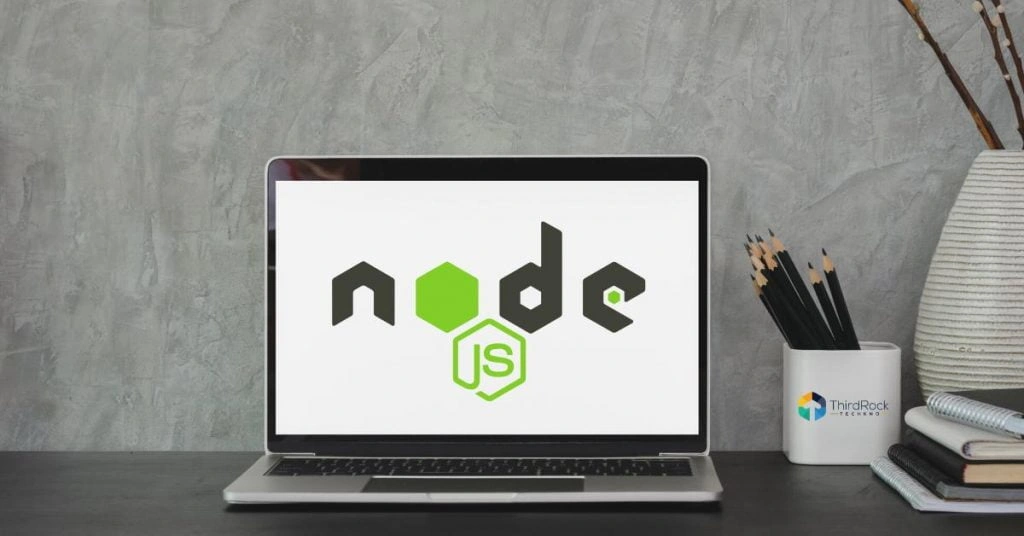Node JS
Our Happy Clients











Node JS DEVELOPMENT AGENCY

ENHANCE YOUR Node JS WEBSITE

Customized Functionality for Precision
Real-time Interaction Capabilities
Scalability for Growing Demands
See more conversions into leads and customers
Are you ready to see your revenue skyrocket?
Node.js Framework - Website Design Service
Custom Node.js Application Development
Harness the power of Node.js for bespoke web applications tailored to your specific business needs. Our expert developers specialize in building high-performance solutions that drive business growth.
Node.js API Development
Build robust APIs with Node.js to facilitate seamless communication between different software systems. Our developers create custom APIs that enhance the functionality and versatility of your applications.
Real-time Application Development
Leverage Node.js for real-time applications that require instantaneous data updates and interactions. From chat applications to live dashboards, we deliver dynamic and engaging user experiences.
Scalability and Performance Optimization
Ensure your Node.js applications perform at their best, even under high traffic loads. We optimize for scalability, making sure your digital solutions remain efficient and responsive as your user base grows.
NODE JS DEVELOPMENT PROCESS
Requirement Analysis and Planning
Thoroughly analyze project requirements and define the scope, objectives, and desired outcomes for the Node.js application. Create a comprehensive plan outlining features, functionalities, and integration points.
Design and Architecture Planning
Map out the architecture of the Node.js application, including database design and user interface. Define how different components will interact and establish clear communication channels for seamless data flow.
Database Design and Schema Development
Develop the data models and database schemas that will support the Node.js application. This step is crucial for organizing and structuring data in a way that facilitates efficient retrieval and manipulation.
Custom Module Development
Begin coding the custom modules and functionalities of the Node.js application. Focus on clean, maintainable code that adheres to industry standards and supports the planned features.
Integration with Existing Systems
Integrate the Laravel application with your existing software ecosystem, ensuring smooth data exchange with other tools and platforms used by your business.
Ideation and Conceptualization
In this initial phase, we brainstorm and conceptualize the Node.js application, defining its purpose, target audience, and core functionalities. This sets the foundation for the entire development process.
Dynamic Frontend Design
Simultaneously, our frontend experts work on the user interface, employing modern frameworks to create an intuitive, visually appealing design that enhances the overall user experience.
User Training and Ongoing Support
We provide comprehensive training for end-users, ensuring they make the most of the Node.js application. Our support extends beyond deployment, with regular updates and maintenance to keep the application secure and efficient.

Requirement Analysis And Planning
Thoroughly analyze project requirements and define the scope, objectives, and desired outcomes for the Node.js application. Create a comprehensive plan outlining features, functionalities, and integration points.

Design And Architecture Planning
Map out the architecture of the Node.js application, including database design and user interface. Define how different components will interact and establish clear communication channels for seamless data flow.

Database Design And Schema Development
Develop the data models and database schemas that will support the Node.js application. This step is crucial for organizing and structuring data in a way that facilitates efficient retrieval and manipulation.

Custom Module Development
Begin coding the custom modules and functionalities of the Node.js application. Focus on clean, maintainable code that adheres to industry standards and supports the planned features.

Integration With Existing Systems
Integrate the Laravel application with your existing software ecosystem, ensuring smooth data exchange with other tools and platforms used by your business.

Ideation And Conceptualization
In this initial phase, we brainstorm and conceptualize the Node.js application, defining its purpose, target audience, and core functionalities. This sets the foundation for the entire development process.

Dynamic Frontend Design
Simultaneously, our frontend experts work on the user interface, employing modern frameworks to create an intuitive, visually appealing design that enhances the overall user experience.

User Training And Ongoing Support
We provide comprehensive training for end-users, ensuring they make the most of the Node.js application. Our support extends beyond deployment, with regular updates and maintenance to keep the application secure and efficient.

Application Development
The core development phase involves writing JavaScript or TypeScript code to implement the application's logic. Developers create routes, controllers, middleware, and database interactions using libraries like Express.js.
WHY SHOULD YOU make website into node js?
Unmatched Performance and Scalability
Transforming your website into a Node.js application significantly boosts performance. Its non-blocking I/O operations and event-driven architecture allow for handling a large number of concurrent connections, ensuring a seamless experience even under heavy traffic loads.
Real-time Interaction and Data Streaming
Node.js excels in facilitating real-time interactions on websites. Whether it's live chats, notifications, or dynamic content updates, Node.js enables instant communication between the server and clients, providing a dynamic and engaging user experience.
Efficient Development and Time-to-Market
Adopting Node.js streamlines development processes. Its ability to use JavaScript on both the client and server side allows for consistent code, reducing development time and costs. This means faster time-to-market for your website or application.
Wide Ecosystem and Community Support
Node.js boasts a rich ecosystem of modules and libraries, enabling developers to leverage pre-built solutions for various functionalities. Additionally, it has a large and active community, providing continuous support, updates, and a wealth of resources for developers.
Frequently Ask Questions

